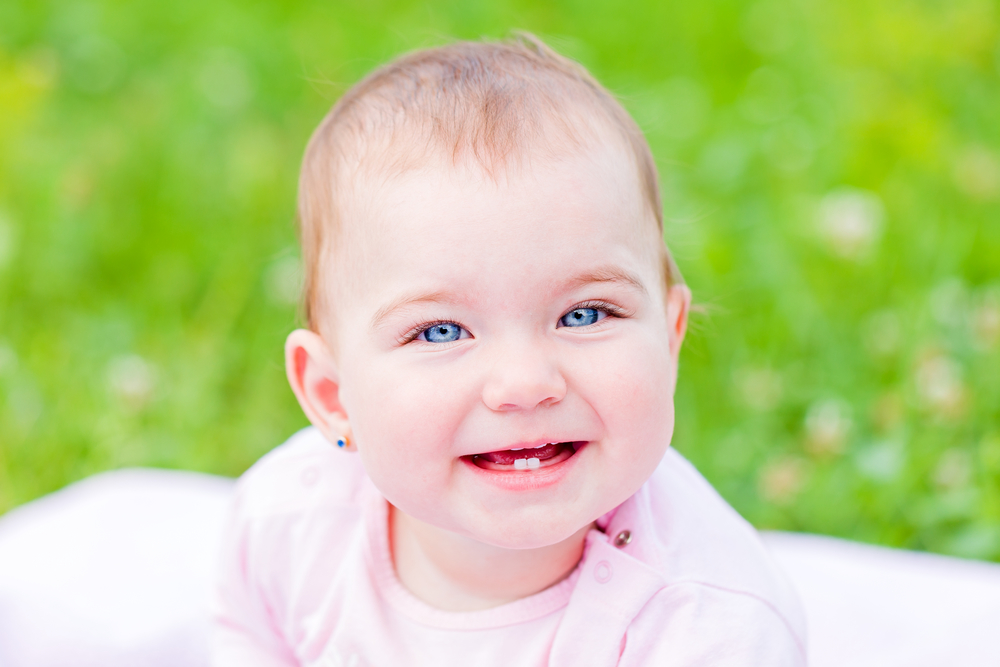Ah teething – once a baby has settled down out of their newborn colicky phase – we then move onto blaming all unsettled behaviour on teething!
Timing
Lots of babies will start putting their hands and other objects in their mouths around three to four months, and dribbling lots.
Exploring everything with their mouths is a huge part of their development in the first year – but it’s not necessarily teething.
Babies are born with twenty teeth developing in their gums. For lots of babies, these teeth will start to move in the gums around four months of age; most will find this uncomfortable.
Babies might get their first teeth anywhere between six to twelve months and get the last somewhere between two to three years. They won’t be teething for this whole time. Their teeth will move around and cut through for a few days at a time and then they’ll settle down for a while until the next lot start moving.
To see what order they generally come in, do an internet search for ‘Baby teething order of eruption’.
It doesn’t matter if babies don’t get their teeth in the traditional order.
Signs of teething
Teething babies will often be grizzly, red in the cheeks and gnawing on anything they can get their hands on. They might have a bit of a temperature, nappy rash or smelly (smellier) poo. When they are teething, they might have some sleep disruption and they might go off their food (either milk, solids or both). Fun times!
Remedies
- Amber beads: a choking hazard, no evidence for their use
- Teething gels: chat with your pharmacist about whether these would be appropriate for your baby
- Analgesia such as Panadol or Nurofen: ask your pharmacist
- Teething rings and baby rusks: something for them to gnaw on, the pressure feels good.
Teething is totally manageable if you’re happy (and it is appropriate) to give your baby analgesia which, as a nurse, I totally was. Some kids get their teeth without a fuss anyway, if you’re lucky!
Cleaning their teeth
Once your baby has a tooth, it’s time to start cleaning it! Giving it a little scrub in the bath with a face washer and water will do the trick. No toothpaste until eighteen months old.
Most babies will have a few teeth by their first birthday. From a dental hygiene point of view, this is the age a dentist would recommend weaning off the bottle, sending your baby to bed with clean teeth and not drinking anything other than water through the night. Yes, milk can decay teeth!
From a practical point of view, lots of little ones continue to love their bottle or even need an overnight feed after this time. A good compromise is to give an evening bottle, then clean their teeth.
Visiting the dentist
Around their first birthday – presuming they’ve got a few teeth! Take them along to your next checkup.
I hope this article helps you to ‘Stress Less’ and enjoy your baby!
Check out my book The Stress Less Baby Guide at www.stresslessbabyguide.com.au
You may also like to read:









